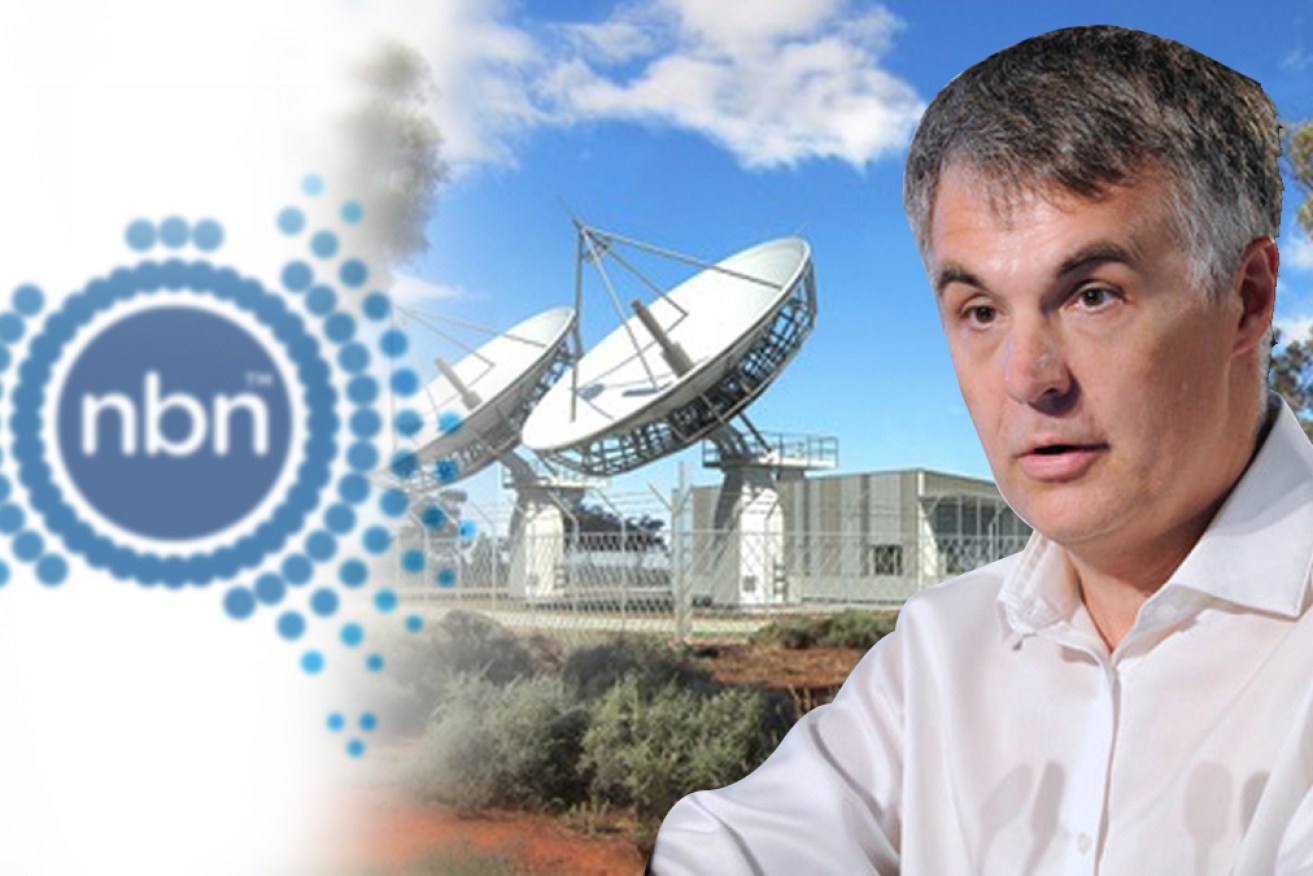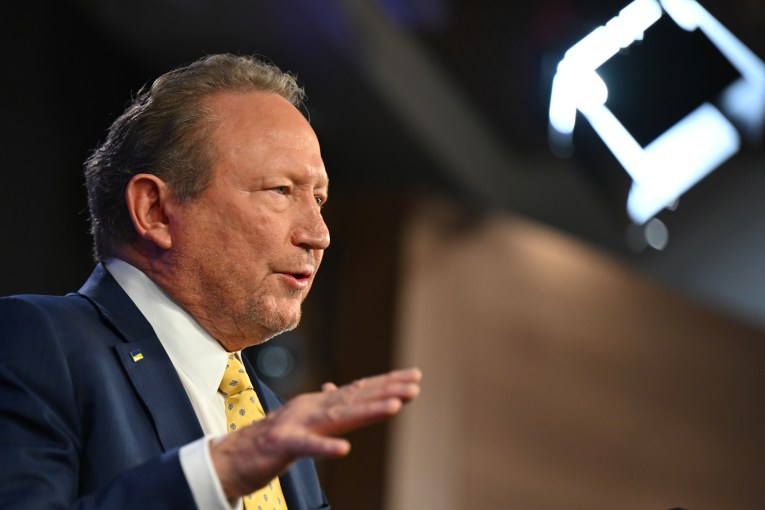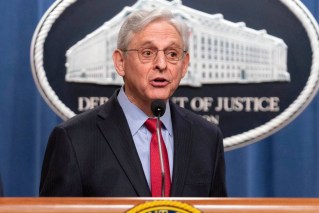Broadband tax: NBN Co accused of ‘sneakily’ slashing regional spending


NBN Co boss Stephen Rue is under pressure to explain a $200 million reduction in fixed wireless spending. Photo: NBN Co/AAP/TND
NBN Co has been accused of “sneakily” slashing $200 million in spending on regional Australia, while simultaneously pushing for a new regional broadband tax.
The tax of $7.10 per month per non-NBN fixed-line broadband user will come into effect on July 1, if the Regional Broadband Scheme Bill passes the Senate as expected, with the funds to be used to prop up NBN Co’s loss-making fixed wireless and satellite networks in regional and remote Australia.
The broadband tax comes as experts continue to call for a royal commission into the $51 billion taxpayer-funded network, citing transparency concerns.
The missing $200 million
In 2019, the NBN Co quietly reduced its spending on fixed wireless technology – which is used to connect homes in regional and remote areas to the NBN – by $200 million.
The firm did not announce the funding cut, which was only discovered when a table outlining NBN Co’s spending by technology type was found to have been omitted from the firm’s 2020 corporate plan.

NBN Co has been accused of quietly cutting funding for fixed wireless. Photo: WhistleOut
NBN Co was then forced to release the missing data in response to a ‘Question on Notice’ submitted by Labor senator Anne Urquhart in September.
The data revealed that funding for hybrid fibre-coaxial (HFC) – a heavily criticised technology that researchers last year revealed has been used to connect 40 to 60 per cent of homes in the nation’s three biggest cities – had been increased, while funding for fixed wireless had been reduced.
NBN Co did not initially deny that it had slashed its fixed wireless spend, instead telling IT News that it had been reduced because the number of fixed wireless premises had been revised down due to inaccurate maps.
This explanation was walked back a day later, with an NBN Co spokesperson telling IT News that the money had been spent on HFC and FTTC instead.
This explanation was contradicted by NBN Co chief executive Stephen Rue in a Senate Estimates hearing.
“There was no $200 million directed away [from fixed wireless],” Mr Rue said.
“We didn’t take $200 million out of fixed wireless and decide to spend it somewhere else.”
Mr Rue claimed the funding cut had nothing to do with a reduction in the number of fixed wireless premises, but that the money had been shifted forward four years, from FY19 to FY23.
However, for Mr Rue’s explanation to be correct, it would mean that NBN Co had originally planned to spend $0 on its fixed wireless network in 2023, despite fixed wireless networks requiring regular maintenance and capacity upgrades.
Last month, Mr Rue’s explanation was contradicted by NBN Co’s chief development officer for regional and remote Australia Gavin Williams at a Senate hearing.
In response to questioning by Senator Urquhart, Mr Williams conceded it was implausible that the NBN Co could go a year without investing any capital in its fixed wireless network.
“My opinion: I can’t see it,” Mr Williams said.
“There’s maintenance [capital expenditure] required on some of the equipment.”
Mr Williams later asked to take on notice the question of “where the $200 million is”.
When questioned by The New Daily, an NBN Co spokesperson refused to explain the inconsistencies in its public explanations of the missing $200 million in fixed wireless funding, instead pointing to the statement issued by the firm in October.
“NBN Co remains committed to the $1.6 billion Fixed Wireless capex budget outlined in the Corporate Plan 2019-2022,” the statement said.
“The variance in FY19 capex numbers purely relates to the slower build and activation activity in fixed wireless in that financial year and is not related to footprint dilution. We could have been clearer on this point.”
A spokesperson for Communications Minister Paul Fletcher repeated the NBN Co’s claims.
However, Labor communications spokeswoman Michelle Rowland said the government had misled regional Australians.
Why is the Morrison government introducing a $7-per-month broadband tax, while sneakily cutting regional funding at the same time?’’ Ms Rowland said.
“Whether it’s broadband or energy, the Coalition are driving up prices, playing politics with technology, and misleading regional Australians.”
Mark Gregory, an associate professor in network engineering at RMIT University, slammed the NBN Co’s failure to spend the $200 million on upgrading its “underperforming” fixed wireless network in regional Australia.
Fixed wireless is underperforming and continues to have unacceptable congestion during peak periods,’’ Dr Gregory said.
“The $200 million CAPEX allocated in FY19 should have been used to improve the performance of the fixed wireless network.”
Dr Gregory called for a royal commission into the NBN rollout.
The only way we’re going to find out if the $51 billion has been spent in a reasonable way is through a royal commission,” he said.
‘Poorly designed’ tax will leave regional Australians with ‘second-rate’ internet
The broadband tax will result in regional Australians continuing to “suffer” with “second-rate” internet, according to telco OptiComm.
In its submission to last month’s Senate inquiry, OptiComm said the “poorly designed narrow targeting of the tax” on non-NBN fixed-line services will allow bigger telcos including Telstra and Optus to bypass the NBN with mobile and wireless plans and “avoid paying the tax, therefore distorting competition and allowing them to avoid contributing their fair share to regional Australia”.
OptiComm said the tax “fails to provide adequate and sustainable funding” for regional Australia.
“Regional residents will continue to suffer with second-rate services as NBN Co will not be able to provide and update adequate infrastructure/capacity while it is paying for 95 per cent of the cost itself,” the firm said.
“The large cost of delivering good regional infrastructure without adequate funding will be unsustainable.”








